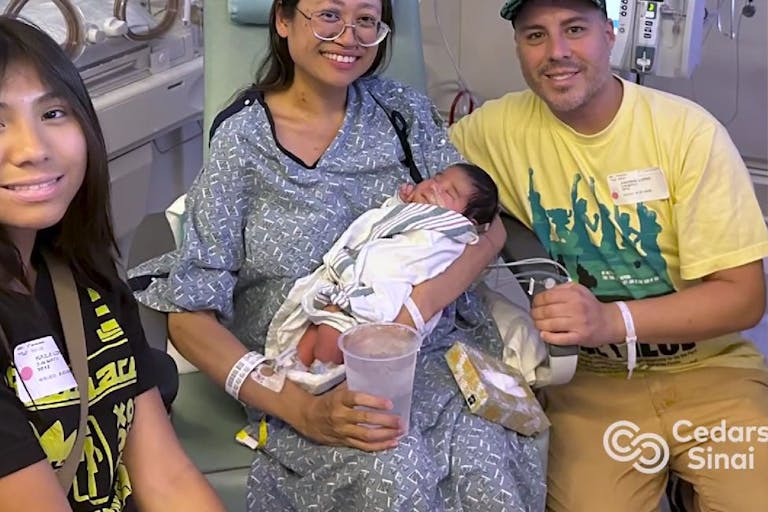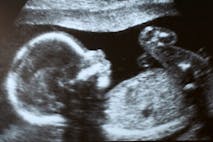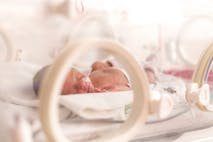
Full term 'miracle' baby born after 'unprecedented' ectopic pregnancy
Bridget Sielicki
·
The UK will now classify people conceived in rape as ‘victims.’ What does this mean?
The UK has announced that it plans to update its Victims Bill to include individuals who were conceived in rape, allowing them to then be entitled to support from criminal justice agencies including the police and the courts.
Known as ‘Daisy’s Law,’ the updates to the Victims Bill will allow these individuals access to information about their case, allow them to file a complaint with the police, and gain access to alcohol and drug treatment, education, and housing benefits. Being allowed to file a complaint can help to ensure that rape and sexual abuse offenses are officially filed.
Daisy’s Law is named for a woman born in the 1970s, who discovered she was conceived in rape when she was 18, and accessed her adoption and birth records. She learned that her mother had been raped at age 13 by Carvel Bennett, the 29-year-old father of children she babysat. No criminal action had ever been taken against him, though Daisy’s mother had said that she was raped by him.
Daisy, after establishing contact with her birth mother, campaigned for justice for her mother, offering her own DNA as evidence to prove Carvel had raped her mother despite his claims otherwise. She asked the police to pursue a “victimless prosecution” that would allow her mother to avoid testifying. Police told her that she was “not the victim” and therefore, she could not bring a case against the rapist. Then her mother decided to give a statement to the police. It took a decade for the case to go before a court, but Bennett was eventually convicted in 2021 to 11 years in prison at the age of 74. Daisy began campaigning to update the Victims Bill and has now been successful.
“Thank you to everyone who supports this campaign. This started because a 13-year-old child was not believed and so grossly let down by police and social care. Huge respect to my birth mother’s courage,” Daisy said of the government’s decision to classify children conceived in rape as victims.
Abortion in cases of rape
UK law allows preborn children (including those conceived in rape) to be aborted through 24 weeks of pregnancy. Children born as young as 21 weeks are capable of surviving outside of the womb. The most commonly used abortion procedure in the second trimester is the D&E, in which the child is killed as the abortionist dismembers her limbs from her torso and then crushes her skull.

Rape is often an exception added to pro-life laws, prohibiting abortions unless a child was conceived in certain circumstances. Time will tell if the UK’s new classification of children conceived in rape as “victims” will help alleviate the stigma attached to rape-conceived children… or increase it. In either case, the victims of a crime should never receive a death sentence.
The circumstances of conception do not define a person
According to the Centre for Women’s Justice, more than 2,000 children were conceived in rape in England and Wales in 2021. The report stated that children conceived in rape are at risk of long-term emotional harm and suggested that abuse towards children conceived in rape may be common. However, rape and its possible effects do not justify intentionally killing a child before birth. Instead, pregnant rape survivors and their children should be provided with mental health assistance and legal support.
Article continues below
Dear Reader,
Have you ever wanted to share the miracle of human development with little ones? Live Action is proud to present the "Baby Olivia" board book, which presents the content of Live Action's "Baby Olivia" fetal development video in a fun, new format. It's perfect for helping little minds understand the complex and beautiful process of human development in the womb.
Receive our brand new Baby Olivia board book when you give a one-time gift of $30 or more (or begin a new monthly gift of $15 or more).
Daisy herself, upon facing her birth father in court, said, “The pain you have caused is immeasurable. To know I exist because you chose to rape a child, to know you are the sum, the embodiment, of one of the worst things that can happen to someone, to be pregnant by your perpetrator. I am more than evidence, I am more than a witness, I am more than a product of rape. I am not your shame, and I will not carry the horror of what you chose to do.”
She added, “We are not our fathers’ sin, we are not rape babies, we are not the rape clause for benefits, we are not the bad seed.”
Tasnim, who learned she was conceived in rape, made similar comments about learning such news. “It alters everything you know, and how you perceive things about your family and about yourself. Because I’m related to a murderer, and also a rapist. And I used to think horrible things like, what if I grow up to be like him?”
Yet, she said of her mother, who was murdered by her father, “I shouldn’t feel bad about myself, because she wouldn’t want that.”
Choosing abortion or life after rape
Women who have been pressured into abortion after rape have shared their regret, saying that “hell would be better” than life following the abortion.
“I could never ever deal with my rape because I was so focused on what I had done in choosing abortion,” explained rape survivor Ashley Sigrest. “And that’s what people don’t understand when they tell rape victims, ‘Oh yes, have an abortion so that way you can go on and we can deal with the rape.’ But the abortion just makes the rape 1,000 times worse because now you have these two horrible events that you have to deal with.”
Women who chose life after rape, however, have said that doing so “empowered” them and brought them “relief.”
Live Action News is pro-life news and commentary from a pro-life perspective.
Contact editor@liveaction.org for questions, corrections, or if you are seeking permission to reprint any Live Action News content.
Guest Articles: To submit a guest article to Live Action News, email editor@liveaction.org with an attached Word document of 800-1000 words. Please also attach any photos relevant to your submission if applicable. If your submission is accepted for publication, you will be notified within three weeks. Guest articles are not compensated (see our Open License Agreement). Thank you for your interest in Live Action News!

Bridget Sielicki
·
Analysis
Angeline Tan
·
Analysis
Cassy Cooke
·
Politics
Madison Evans
·
Opinion
Nancy Flanders
·
Investigative
Carole Novielli
·
Issues
Nancy Flanders
·
Human Interest
Nancy Flanders
·
Investigative
Nancy Flanders
·
Pop Culture
Nancy Flanders
·
Human Interest
Nancy Flanders
·